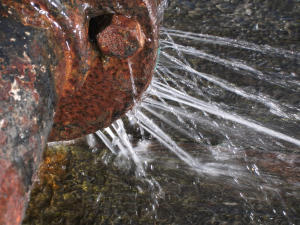Infrastructure protectionNew Jersey faces costly water infrastructure upgrades
Before Hurricane Sandy hit New Jersey, state officials knew they had much work ahead of them to update the state’s water infrastructure. The damage Sandy inflicted only highlighted the inadequacies of New Jersey’s outdated wastewater, stormwater, and drinking water infrastructure. Upgrading the system will be costly, but not doing so will be costlier.

New Jersey needs $40 billion in infrastructure upgrades and repairs // Source: jornalzonasul.com.br
Before Hurricane Sandy hit New Jersey, state officials knew they had much work ahead of them to update the state’s water infrastructure.
“Right before the storm came, the things we were working on were very focused on asset management,” Michele Siekerka, assistant commissioner for water resource management at the New Jersey Department of Environmental Protection (DEP) said. The damage Sandy inflicted only highlighted the inadequacies of New Jersey’s outdated wastewater, stormwater, and drinking water infrastructure.
NJbizreports that representatives from public agencies and the private sector met at a day-long conference, organized by NJ Spotlight, to discuss the challenges facing the state’s water infrastructure.
Two themes dominated the discussions. First, experts on the panels agreed there was a lot of work ahead in order to bring the state’s water infrastructure into reasonable shape, and that it would cost billions of dollars to do that. Second, that amount of money is nothing compared to the cost of the damage, and the recovery from it, from another storm if it hits before the essential upgrades to the infrasgtructure are made..
A report by the group Facing Our Future (FOF) says New Jersey needs to invest around $40 billion to protect and update its water infrastructure.
According to Atlantic County Utilities Authority president Richard Dovey, it is not always easy to convince the public that there is a need for infrastructure improvements.
“This sector, water, sewer, even solid waste, is particularly hard to get across to the public,” Dovey told NJbiz. “Our infrastructure’s underground.”
Robert Hughey, a member of FOF, said that although the price tag is high, the state has the funds to pay for it.
“Water is one of the best bargains in the world,” Hughey told NJbiz, adding that people gladly pay far more than the price of tap water for bottled water.
Stephen Schmitt, vice president of operation at New Jersey American Water, said that rates for customers may double over the next twenty years. Schmitt acknowledges that may be a steep price, but only because utilities are increasing their rates based on annual operating expenses, which he believes “are false rates.”
According to Schmitt, utilities and regulators have to take responsibility for the long-term management of their infrastructure systems. Siekerka agrees with Schmitt, saying policymakers have to make sure the money is spent wisely and efficiently.
The DEP is working on a new water supply plan for the state, but it is not clear when it will be released.
